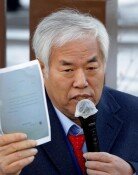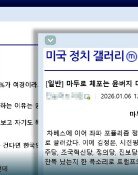[Opinion] Director Yang Jung-ung Enters the Barbican Center
[Opinion] Director Yang Jung-ung Enters the Barbican Center
Posted September. 14, 2005 07:46,
Koreas first modern play was Punishment for Bad Children performed at the Eoseong Theater outside Namdaemun, Seoul, by the theater company, Reform, in 1911. Almost 100 years have passed, and the theater industry is welcoming some good news. A Korean theater company, Yohangza, is heading into Britain with Shakespeares A Mid-summer Night`s Dream. Londons Barbican Center, where the play will be staged next June, is the place where anybody in drama from around the world would dream to perform at least once in his or her life. It is said that the center decided to invite the troupe after seeing its performance. This shows how Koreas play performance has been exported in a reverse way.
Shakespeare left 38 plays, of which A Mid-summer Nights Dream on genuine love is most commonly performed. His works have been translated into the most number of languages after the Bible. He is worthy to be praised as the best writer ever. Even communist countries during the Cold War era accepted him out of all Western writers. The United Kingdom, for its namesake as Shakespeares birthplace, produces very high quality plays. It was Britons who granted the permanent right to use the Barbican Center to the Royal Shakespeare Company in a gesture to honor the genius.
Britons grew interested in Korean plays thanks to the 30-something director Yang Jung-ung. He has extraordinary ambitions to reach the world. Yangs version of A Mid-summer Nights Dream begins with replacing the Palace of Theseus of Athens with a remote village of Korea in the past. Characters on the stage are also conventional Korean youth wearing Hanbok, or Korean traditional costumes, along with monsters often found in Korean fairy tales. Such an implicit conversion is outstanding as the original framework of the play is maintained while Korean fairy tales appear to be told.
Britons would have neglected it if the format were Western as the original is. The secret behind the success was the directors insight that expressing Koreas unique aestheticism is recognized by the world. He said from the start while mulling over the overall plot that he aimed to advance to the global market. Shakespeare once said, All is ready when the mind is ready. This may be a helpful vision for the Korean culture to be introduced to the world.
Hong Chan-shik, Editorial Writer, chansik@donga.com



![[속보]윤석열 사형 구형…내란특검 “전두환보다 엄정히 단죄해야”](https://dimg.donga.com/c/138/175/90/1/wps/NEWS/IMAGE/2026/01/13/133151283.1.jpg)



